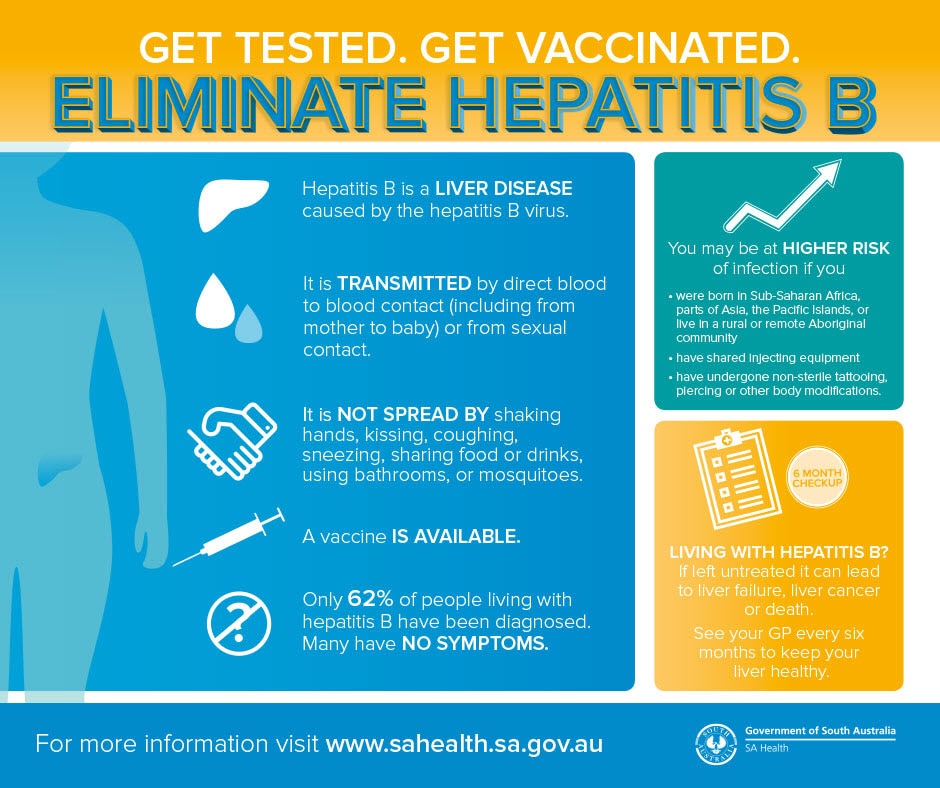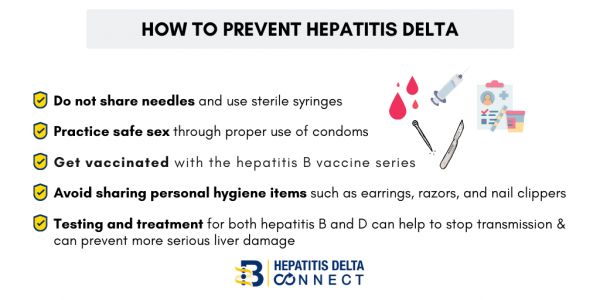Discover the life-saving strategies to prevent and manage Hepatitis B, uncovering the key steps to protect your health today.
Table of Contents
- Introduction to Hepatitis B
- Understanding Your Liver
- How Hepatitis B Spreads
- Signs of Hepatitis B
- All About Hepatitis B Vaccination
- Dealing with Chronic Hepatitis B
- Preventing Hepatitis B
- Managing Hepatitis B
- Myths vs Facts About Hepatitis B
- Where to Get Help
- Summary: Staying Strong and Safe
- Frequently Asked Questions (FAQs)
Introduction to Hepatitis B
Hepatitis B is a type of viral hepatitis that affects the liver. Viral hepatitis is a group of liver diseases caused by different viruses. Hepatitis B is one of these viruses that can lead to liver inflammation and other serious health problems.
It is essential to learn about Hepatitis B because understanding how it spreads and its symptoms can help you take steps to prevent it. By knowing more about Hepatitis B, you can protect yourself and others from getting sick.
Understanding Your Liver
Your liver is a vital organ in your body that plays a crucial role in keeping you healthy. Think of it as a hard-working factory that helps process the food you eat and filters out harmful substances. Without your liver, your body wouldn’t be able to function properly.
Liver Health
It’s essential to take care of your liver because a healthy liver means a healthy body. Eating nutritious foods like fruits and vegetables, drinking plenty of water, and getting regular exercise are ways to keep your liver in tip-top shape. Avoiding unhealthy habits like smoking and excessive drinking can also help protect your liver.
Remember, your liver works hard every day to keep you healthy, so be sure to give it the care it deserves.
How Hepatitis B Spreads
Did you know that Hepatitis B is a virus that can make people sick? This virus can be passed from one person to another in different ways. Let’s talk about how Hepatitis B spreads so that you can better understand how to stay healthy.

Image courtesy of www.sahealth.sa.gov.au via Google Images
Through Blood
One way Hepatitis B spreads is through blood. This means that if someone with Hepatitis B has a cut and you come into contact with their blood, you could also get the virus. That’s why it’s essential to be careful around blood and make sure to clean any cuts you may have to stay safe.
From Mom to Baby
Another way Hepatitis B can spread is from a mom who has the virus to her baby during childbirth. It’s really important for pregnant women to get tested for Hepatitis B so that doctors can help protect their babies from getting sick.
Through Sharing Needles
Hepatitis B can also spread if you share needles or other things that might have blood on them, like toothbrushes or razors. It’s best always to use your things and never share these kinds of items to avoid getting sick.
Now that you know how Hepatitis B spreads, you can take steps to protect yourself and others around you. Being informed is the first step to staying healthy!
Signs of Hepatitis B
When someone has Hepatitis B, their body might show some signs that something is not quite right. These signs could include feeling very tired all the time, having a decreased appetite where you don’t feel like eating much, or experiencing pain in your stomach area. Another common symptom of Hepatitis B is jaundice, which is when your skin and eyes start to turn yellow.
Understanding the Importance of Symptoms
It’s essential to pay attention to these symptoms because they can help doctors diagnose Hepatitis B early on, which gives a better chance of treating it successfully. If you or someone you know has any of these symptoms, it’s crucial to visit a doctor to get proper care and treatment.
All About Hepatitis B Vaccination
Have you ever heard of vaccinations? They are like super shields that help keep our bodies strong and healthy. One important vaccination kids your age might get is for Hepatitis B. Let’s learn more about how this vaccine can protect you.

Image courtesy of www.hepb.org via Google Images
What Vaccinations Are
Vaccinations are special shots that help our bodies fight off harmful germs and viruses. They work like superheroes, training our immune system to recognize and defeat invaders like the Hepatitis B virus.
How the Hepatitis B Vaccine Helps
The Hepatitis B vaccine is like a shield that blocks the Hepatitis B virus from making you sick. It teaches your body how to stay strong and fight off the virus if it ever tries to attack. By getting this vaccine, you are taking a big step in protecting your liver and overall health.
Dealing with Chronic Hepatitis B
When someone has chronic hepatitis B, it means that the virus has stayed in their body for a long time. It’s important to know that having chronic hepatitis B does not mean that someone can’t live a happy and healthy life. With the right care and treatment, it is possible to manage the virus and stay well. Let’s explore what this means and why taking care of oneself is crucial.
Understanding Chronic Hepatitis B
Chronic hepatitis B is when the virus stays in a person’s body for more than six months. The good news is that not everyone with acute hepatitis B, which is the early stage of the infection, will develop chronic hepatitis B. For those who do, it’s essential to work closely with a doctor to monitor the virus and liver health regularly.
Why Long-Term Care Matters
Living with chronic hepatitis B means taking care of your liver and overall health every day. This includes eating healthy foods, getting enough rest, and avoiding things that can harm your liver, like alcohol and certain medications. Regular check-ups with a doctor are crucial to keep an eye on how the virus is affecting your liver.
Staying Positive and Hopeful
Having chronic hepatitis B can feel overwhelming, but it’s vital to stay positive and hopeful. With the right support from doctors, family, and friends, it is entirely possible to live a full and active life. Remember, you are not alone in this journey, and there are many resources available to help you manage your condition.
Preventing Hepatitis B
The best way to stay healthy and avoid getting Hepatitis B is by taking some simple steps in your daily life. Hepatitis B is a virus that can affect your liver, but there are ways to protect yourself from getting sick. Let’s talk about how you can prevent Hepatitis B.

Image courtesy of nfid.wordpress.com via Google Images
Wash Your Hands
One of the easiest ways to prevent Hepatitis B is by washing your hands regularly. Germs can spread easily, so make sure to wash your hands with soap and water, especially before eating and after using the bathroom. This simple habit can help keep you safe from many illnesses, including Hepatitis B.
Avoid Sharing Personal Items
Sharing personal items like toothbrushes, razors, or needles can put you at risk of catching Hepatitis B. It’s important to use your own belongings to avoid getting in contact with someone else’s bodily fluids that might carry the virus. By keeping your personal items to yourself, you can protect yourself and stay healthy.
Get Vaccinated
One of the best ways to prevent Hepatitis B is by getting vaccinated. A vaccine is like a shield that helps your body fight off the virus if you ever come into contact with it. Talk to your parents or a healthcare provider about getting the Hepatitis B vaccine to stay protected and keep your liver healthy.
Stay Active and Eat Healthy
Eating a balanced diet and staying active can boost your overall health, including your liver. By eating fruits, vegetables, whole grains, and lean proteins, you give your body the nutrients it needs to stay strong and fight off infections like Hepatitis B. Remember to also drink plenty of water to keep your body hydrated and functioning well.
By following these simple tips and making healthy choices every day, you can reduce your risk of getting Hepatitis B and keep your liver in good shape. Prevention is always the best medicine, so take care of yourself and stay healthy!
Managing Hepatitis B
Living with Hepatitis B can feel overwhelming, but with the right care, it is possible to lead a healthy life. Whether you or someone you know has been diagnosed with chronic hepatitis, it’s essential to take steps to manage the condition and protect your liver health.
Taking Care of Your Liver
Your liver plays a vital role in keeping your body healthy. To support your liver when dealing with Hepatitis B, make sure to eat a balanced diet with plenty of fruits, vegetables, and whole grains. Drink lots of water and limit fatty or processed foods. Avoid alcohol entirely, as it can harm your liver, especially when dealing with hepatitis.
Regular Doctor Visits
It’s important to see your doctor regularly when managing Hepatitis B. They can monitor your liver function, adjust your treatment plan if needed, and provide support and guidance. Don’t hesitate to ask questions and share any concerns you may have about your health.
Take Medications as Prescribed
If your doctor has prescribed medication to manage your chronic Hepatitis B, be sure to take it exactly as directed. Skipping doses or stopping medication abruptly can be harmful and impact the effectiveness of the treatment. Follow your doctor’s instructions carefully to ensure the best results.
Get Plenty of Rest
Rest is essential for your body to heal and stay strong. Make sure to get enough sleep each night and listen to your body when it needs a break. If you feel tired or run down, take the time to rest and recharge.
| Prevention | Management |
|---|---|
| Get vaccinated | Antiviral medications |
| Avoid sharing needles | Liver transplant |
| Practice safe sex | Lifestyle changes (diet, exercise) |
| Wear gloves when handling blood | Regular monitoring of liver enzymes |
Stay Positive and Stay Informed
Living with Hepatitis B can be challenging, but maintaining a positive attitude and staying informed can make a big difference. Educate yourself about the condition, connect with support groups or resources, and lean on friends and family for help when needed. Remember, you are not alone, and there are ways to manage Hepatitis B and live a full and healthy life.
Myths vs Facts About Hepatitis B
Fact: Hepatitis B is not spread through sharing food. It is transmitted through infected blood, semen, or other body fluids.

Image courtesy of www.globalhep.org via Google Images
Myth: Only adults can get Hepatitis B
Fact: Children and teenagers can also get Hepatitis B. It is important for everyone to get vaccinated to protect against this virus.
Myth: Hepatitis B is just like the flu
Fact: Hepatitis B is a liver infection that can become chronic and lead to serious health problems if left untreated. It is not the same as the flu.
Myth: You can tell if someone has Hepatitis B just by looking at them
Fact: Hepatitis B often has no visible symptoms, so you can’t tell if someone has it just by looking at them. It’s important to get tested if you think you may have been exposed to the virus.
Myth: There is no treatment for Hepatitis B
Fact: While there is no cure for Hepatitis B, there are medications available that can help manage the virus and reduce the risk of complications. It is important to work with a healthcare provider to develop a treatment plan.
Where to Get Help
If you or someone you know needs help with Hepatitis B, there are places you can turn to for support and information.
1. Doctor’s Office
Your doctor is a great person to talk to if you have questions or concerns about Hepatitis B. They can provide you with the right information and guidance on how to manage the virus.
2. Health Centers
Health centers are also fantastic places to seek help for Hepatitis B. They have healthcare professionals who specialize in treating and supporting people with the virus.
3. Support Groups
Joining a support group can be a wonderful way to connect with others who are going through similar experiences with Hepatitis B. These groups provide a space to share your feelings, ask questions, and get advice from those who understand.
4. Online Resources
There are many reputable websites and online resources that offer reliable information about Hepatitis B. Make sure to only use trusted sources like the Centers for Disease Control and Prevention (CDC) or the World Health Organization (WHO).
Remember, it’s essential to reach out for help when you need it. Don’t be afraid to ask questions and seek support from those around you. Together, we can work towards preventing and managing Hepatitis B.
Summary: Staying Strong and Safe
Now that you’ve learned all about Hepatitis B, it’s important to remember how to stay strong and safe. Keeping your liver healthy is essential for your overall well-being, and preventing the spread of Hepatitis B is crucial.
Image courtesy of www.burkenc.org via Google Images
Prevention is Key
To prevent Hepatitis B, always remember to wash your hands often, especially before eating and after using the restroom. Avoid sharing personal items like toothbrushes or razors, as the virus can spread through blood and bodily fluids. Additionally, getting vaccinated is a great way to protect yourself from Hepatitis B.
Take Care of Your Liver
Your liver plays a significant role in keeping your body healthy. To support your liver health, make sure to eat a balanced diet with plenty of fruits and vegetables, stay hydrated by drinking water, and get regular exercise. Avoid substances that can harm your liver, like alcohol and certain medications, and always follow your doctor’s recommendations for managing Hepatitis B.
By following these simple steps, you can help prevent Hepatitis B and keep yourself strong and safe. Remember, if you ever have any questions or concerns about Hepatitis B, don’t hesitate to reach out to a trusted adult or healthcare provider for support and guidance.
Frequently Asked Questions (FAQs)
What is Hepatitis B?
Hepatitis B is a type of viral hepatitis that affects the liver. It can make you sick, but there are ways to prevent it and take care of yourself if you have it.
How do you get Hepatitis B?
You can get Hepatitis B by coming into contact with the blood, semen, or other body fluids of someone who is infected. It can also be passed from mother to baby during childbirth.
What are the symptoms of Hepatitis B?
The common symptoms of Hepatitis B include feeling tired, stomach pain, vomiting, and having yellow skin or eyes. It’s essential to tell an adult if you have these symptoms.
Why is liver health important?
The liver is like a filter in your body that helps clean your blood and process nutrients. Keeping your liver healthy is crucial for overall well-being.
How does the Hepatitis B vaccine work?
The Hepatitis B vaccine helps your body build protection against the virus, so if you ever come into contact with it, you won’t get sick. It’s like giving your body superhero powers to fight off bad germs.





